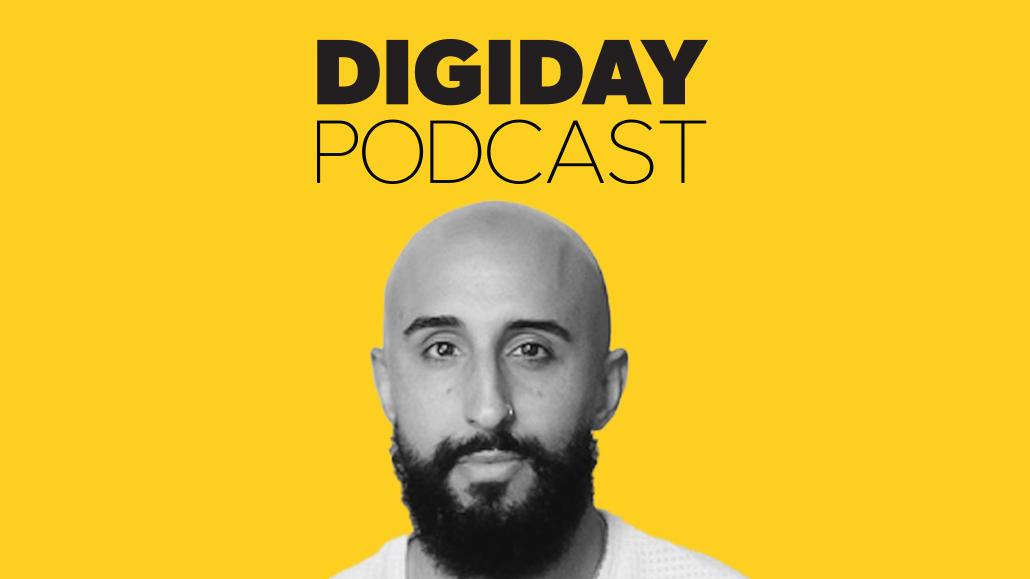Secure your place at the Digiday Media Buying Summit in Nashville, March 2-4
Spill co-founder Alphonzo Terrell on attracting advertisers to marginalized social communities

Subscribe: Apple Podcasts • Spotify
Big advertisers are seemingly ready to abandon X (formerly Twitter) for good this time thanks to owner Elon Musk’s latest antics and an uptick in anti-semitic posts on the platform. (Read the full rundown on fleeing advertisers here.)
In X’s absence, advertisers may once again find themselves looking for the social media’s next town square after failing to be wooed by X alternatives like Mastodon and Bluesky earlier this year.
Enter Spill. It’s been just over a year since the iOS social media platform with a ‘meme-forward’ aesthetic launched with former Twitter employees Alphonzo “Phonz” Terrell and DeVaris Brown at the helm. It’s not that the duo are trying to re-create Twitter. In fact, Terrell says Spill is an online safe space for LGBTQIA+, POC and other historically marginalized communities. The two have spent the last year on product developments for users as well offerings for advertisers in hopes to mark Spill’s territory in a rapidly changing social media landscape.
“There’s been some very organic integrations and opportunities for brands to plug in and put some shine on what the [Spill] community is already doing,” Terrell said on the most recent episode of the Digiday Podcast, “and also create some new opportunities to just have really rich, fun conversations.”
Below are highlights from the conversation, which have been lightly edited and condensed for clarity.
On building and housing diverse communities
What we’re doing that shouldn’t be radical, but unfortunately is, by starting with the communities that we come from, [which] are the most engaged on social and in media in general: Black women, the queer community. Black women over-index on social media usage more than any other identity group and media consumption. Yet, platforms and brands, like major ones, just don’t build for that community. A lot of the behavior is, “Let’s build something and then we’ll figure out who the cool kids are later, and then try and throw them a party once a year and keep everybody around.” It’s the exact opposite of our thesis. It’s, “Hey, let’s start with the culture drivers, really solve for the challenges and problems, super serve, listen.” That’s not just a strategy. That’s the thesis and reason for Spill to be in a lot of ways. So that has morphed into understanding [for] brands and advertisers and our revenue models.
Spill in the creator economy
Money gets talked about a lot in the creative economy, understandably. But the other issue that we’ve seen, especially when it comes to Black, queer, and creators from underserved groups, is credit: Who originated something and that person really getting to be able to benefit when that cultural totem, whatever it might be, ends up becoming the thing that everybody else does. And so we focused on those two things: One from a technological standpoint. We’re looking at next generation technologies. Blockchain is one of them, but there’s a few others as well, that will allow us to create an immutable record of what you create on Spill, regardless of whether people are on the platform or not. And then the second, of course, is rewards. And rewards can take a number of different forms. Compensation is one of them.
How Spill is pitching advertisers
What we’re saying to the advertising world is, first and foremost, we have the data to prove that Black [communities], queer communities, other marginalized communities, historically, are just over-indexing on content performance and engagement on the platform. It’s just good business. And not twice a year, but year round, when you have these culture drivers. There’s also a loyalty in our communities that is unmatched. Once we decide we like something, we’re riding for it, and going defend it and show up. There’s a premium that needs to be placed on that, that really transcends traditional forms of digital marketing.
More in Podcasts

Digiday ranks the best and worst Super Bowl 2026 ads
Now that the dust has settled, it’s time to reflect on the best and worst commercials from Super Bowl 2026.

Inside NBCUniversal’s test to use AI agents to sell ads against a live NFL game
NBCUniversal’s Ryan McConville joined the Digiday Podcast to break down the mechanics of the company’s first-of-its-kind agentic AI ad sales test.

Digiday staffers tackle the creator vs. influencer divide
Creator vs. influencer: Digiday staffers debate the difference, and why it matters to marketers on this episode of the Digiday Podcast.








